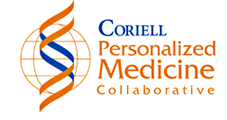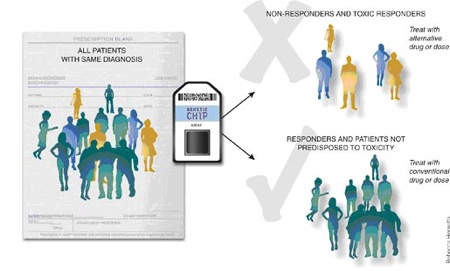Free Genetic Testing
Kevin Kelly
February 20, 2009

The cheapest commercial genome testing right now is from 23andMe for $400. Prices in this area will continue to drop, while the number of genes sequenced rise. However nothing beats free. You can now get your genome sequenced (partially) for free by participating in a large-scale research program to try to correlate genes with disease. The Coriell Personalized Medicine Collaborative (CPMC) is being funded by charitable foundations, and they have money at present to sequence 10,000 volunteers. To get your genes sequenced for free there are several caveats.
1) You need to be over 18
2) You need to attend an educational session. At the moment these are only offered in Camden, New Jersey (near Philadelphia). They claim to be working on a mail-in version later.
3) You won’t get your gene code back. Instead you will only receive data that is “medically actionable.” In other words you will only get reports about genes that their board of doctors feel you can do something about.
The key phrase here is “board of doctors.” Unlike commercial services which return your full test results and let you do what you want with this data, this survey is run by doctors who feel ethically obligated to offer responsible medical counsel, and so they will not tell you about genes that have no medical value, or about which the science is not certain in their opinion.

For some people this is the doctor priesthood exerting their control over your health options (they would like companies like 23andMe shut down unless they let doctors take control). For others, this is a good deal. Free testing, plus free doctor advice about what is worth paying attention to and what is just fluff.
My long-term prediction has been that pharmaceutical companies will eventually pay for your genome sequencing in full since they can target drugs to specific genetic cohorts and avoid those patients with genes that may produce negative side effects. But again you may not get your full sequence back. But as in the rest of life, there is no such thing as a free lunch.
To clarify what kind of results you get back, here are some excerpts from the CPMC FAQ:
This study will only report back to participants those genetic variants that are potentially “medically actionable.” Potentially medically actionable genetic variants are those for which 1) there is a scientifically valid association between the variant and a specific health condition, 2) there are actions or interventions that can be taken to reduce the risk of the health condition, and 3) the risk of adverse events from these possible interventions is likely small in relation to the risk associated with the genetic variant if no medical action is taken.
You WILL NOT receive results for all genetic variants. Genetic variants associated with medical conditions for which there is no treatment or intervention to reduce the risk of disease WILL NOT be reported back to participants. For example, variants elevating risk for incurable diseases such as Alzheimer’s disease will not be reported. If a new therapy or lifestyle intervention is reported, the ICOB may update a condition to be “potentially medically actionable.”
The technology employed by the CPMC™ is not designed to detect single-gene mutations that cause rare Mendelian disorders such as sickle cell disease, cystic fibrosis and Tay-Sachs; therefore, these are very unlikely to be detected and reported to you.


